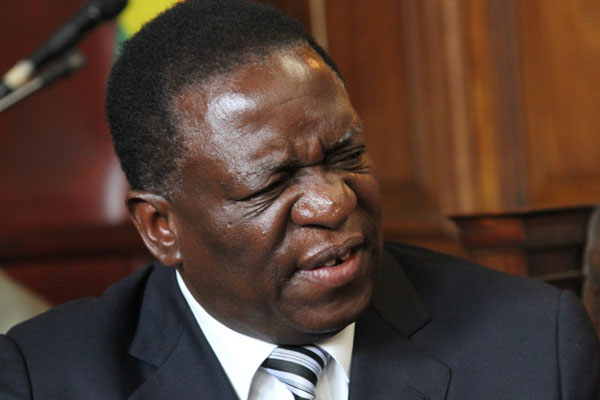The Freedom Alliance political party says the Zanu PF government has been on a drive to depopulate Matabeleland for its own political interests and the 2022 Census preliminary results expose that.
A census is used for planning, administration and resource allocation, but Deputy National Leader of the Freedom Alliance party, Moses Mzila Ndlovu claimed the Zanu PF government is “using state employees from the statistical offices and academics” to produce lies and support their data.
His sentiments come after the report released by the Zimbabwe National Statistics Agency (ZIMSTAT) last week shows that Bulawayo recorded the lowest annual growth rate (0.2 percent), with a population of 665 940 slightly up from 653 337 compiled in 2012.
Zimbabwe’s distribution of the population by province for 2022 also shows that Bulawayo constitutes 4.4 percent, Matabeleland North – 5.5 percent and Matabeleland South provinces makes up five percent while Harare, followed by Manicaland and Mashonaland West make up 16 percent, 13.4 and 12.5 percent respectively.
One national demographer, Professor Marvellous Mhloyi, founder of the Demography Teaching and Department of Population Studies at the University of Zimbabwe, was reported saying Matabeleland will need an estimated 350 years to double its population, which has been on a slow growth rate mainly due to low fertility rate, cultural practices and migration, among a number of factors.
However, Ndlovu questioned why demographers had not said why the population of Matabeleland dropped in 1980.
“One, there has never been a proper census since 1980 and two, the most important issue around population was the depopulation of Matabeleland by Gukurahundi carried out by Zanu PF. Up to today, we don’t have the nearest figure on the numbers of people killed and those who left the country,” he said in an interview with CITE.
The former national healing minister said the nearest record of statistical evidence of people that were killed during Gukurahundi was done by the Catholic Commission for Justice and Peace (CCJP).
“Given the circumstances of security issues around Matabeleland, the movement of CCJP was inhibited and they tried to produce a thorough job while people were also scared from telling the truth, something which is still with us today. The whole truth around Gukurahundi has never been exposed and my argument is Matabeleland was depopulated deliberately,” Ndlovu remarked.
“It was a strategy by Zanu PF, as part of their agenda against the people of Matabeleland. Yes, they depopulated Matabeleland by killing people.”
Ndlovu noted that the population affected other services, which relied on statistical data.
“When you destroy the population, services like education and health suffer immediately. You cannot talk of education and say Matabeleland is a low performer when up to 1980 Matabeleland was leading in terms of quality education. That is why students came from Mashonaland to learn at schools such as Thekwane and Umzingwane, or colleges such as the United College of Education because Matabeleland was leading but now is at the bottom of the education field,” he explained.
“Zanu PF must take the blame but is not going to accept the blame because it was part of their agenda to destroy the population.”
Ndlovu said to downplay the issue, some writers came up with certain theories to divert attention.
“One journalist wrote that if children fail in Matabeleland, God blessed them with busts and big buttocks. This is an insult, which destroys the confidence of people in Matabeleland and their sense of belonging in this country. People are right to feel that they do not belong in this country,” said the former healing minister.
“There is no country that can treat its citizens the way people in Matabeleland have been treated in Zimbabwe. When you talk about a society’s population, you have to take into account the history, language, economy and land. You cannot talk about population without these factors and have these been discussed about Matabeleland?”
Critical studies scholar, Khanyile Mlotshwa concurred that “any census is a political act, as it is a play around the numbers of people.”
“This includes the Roman census of the Jews just before Jesus Christ was born. Considering that geographers say the counting of people is important for planning, administration and resource allocation, it means the politics of census as a play around the numbers of people is, tragically, a play around the livelihoods of people,” he said.
Mlotshwa said if the government had no problem with “carelessly playing around with 20 000 lives,” in Zimbabwe during the 1980s, “what is deliberate miscounting and undercounting to them?”
“If it means starving a vast geographical space of any resources for development, certainly playing census politics is the most sophisticated trick in the book that they can adopt. But considering we have been in this storm for many seasons now, whether they say there are only two men in Matabeleland and the rest are in Wenela does not matter at all,” he stated.
“Matabeleland must face neither East nor elsewhere but look inside itself and imagine a new politics and a new future for itself. The census, the elections will always be governmentality tools at the hands of those in charge of state power and we should not legitimise their childish politics by always complaining.”

